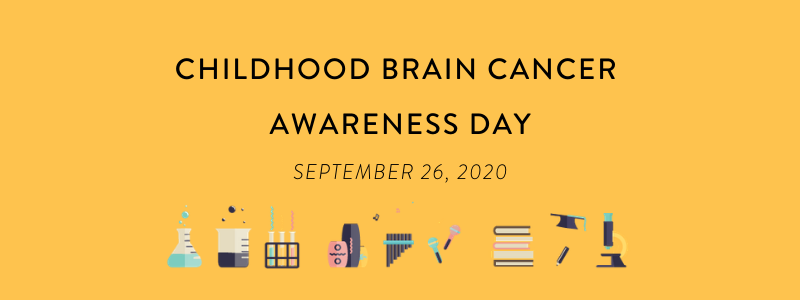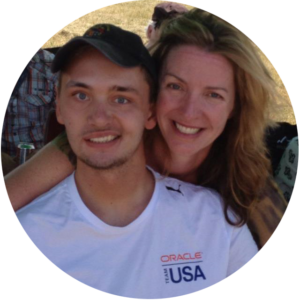
Childhood Brain Cancer Awareness Day
Saturday 26 September 2020 is the second annual Childhood Brain Cancer Awareness Day in Australia.
Every year Childhood Brain Cancer Awareness Day will focus on a different strain of the disease, this year the spotlight is on ependymoma.
Ependymoma is a devastating disease with no current cures. Ependymomas are more common in children than in adults and are reportedly the third most common brain tumour in children. In paediatric cases the location of ependymomas are more likely to be intracranial, while in adults it is spinal.
Liz Dawes founded the Robert Connor Dawes Foundation in memory of her 18-year-old son who died eight years ago after being diagnosed with the disease. “Our son Connor was diagnosed with an anaplastic ependymoma brain tumour. He died from this disease 16 months later,” said Liz.
“We have since established the Robert Connor Dawes Foundation in his memory. His spirit lives on, inspiring us to work hard to change the odds for other young people. We have a specific interest in funding ependymoma research, connecting Australian researchers to work being done in this area overseas.”

Connor underwent surgery which caused loss of movement to his right side, impaired vision and severe short-term memory loss. But he was determined to fight and focused on his physical and mental rehabilitation. Through all the treatment that followed Connor never stopped smiling and remained positive. You can read more about Connor’s story here
Doug Cunningham, Chair of The Kids’ Cancer Project Board, lost his five-year-old son Murray to ependymoma. A loss that left him with a strong urge to use his skills to give back to people going through what he’d and his family had suffered.
“Medical research is a long-term play, but it holds the key to being able to treat ependymoma and other childhood cancers effectively, and by that, I mean with minimal suffering and 100% survival.”
Side-effects brain or spine cancer treatment can have a large impact on the developing body of children, and radiation therapy in particular can damage normal brain structures causing learning problems or slow growth and development. Current clinical treatments only help 50% of children, but leave 90% with lifelong physical and mental impairments.
“Finding the delicate balance between giving enough therapy to eliminate ependymoma, but not so much to as to damage healthy cells and cause unnecessary side effects is one of the most difficult challenges in treating tumours in children,” said Doug.
In a show of commitment to doubling the 10-year survival rate of childhood brain cancer and improving the quality of life of people living with brain cancer, the Federal Government announced, for Childhood Brain Cancer Awareness Day in 2019, a commitment to provide $7 million from the Medical Research Future Fund (MRFF) for childhood brain cancer clinical trials from 2019 – 2024.
Along with funding for clinical trials, $1.4 million was awarded to Dr Misty Jenkins at the Walter and Eliza Hall Institute of Medical Research to design immunotherapy treatments for adult and paediatric high grade gliomas. The RCD Foundation is proud to be co-funding both of these. You can find more info about what we’re funding here
The Foundation also continues to fund an ongoing two year paediatric ependymoma fellowship in partnership with CERN (the Collaborative Ependymoma Research Network) you can read more about it here
We will be featuring young people with ependymoma on our social media later this week. Follow us on Facebook and Instagram to stay in the know.
To help us to continue funding research projects to change the odds for young people with brain cancer, donate here